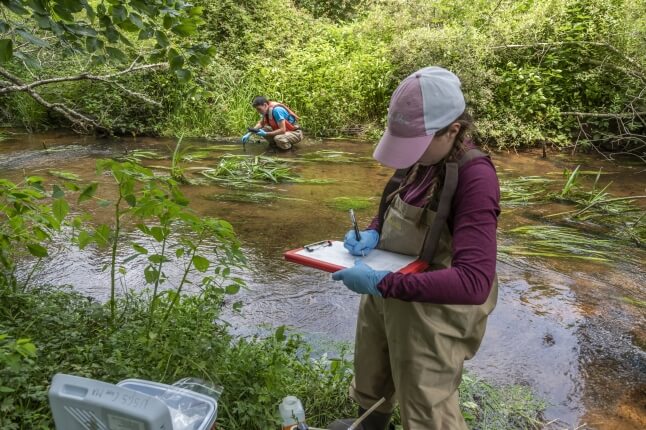News
Students apply engineering skills to mitigate impact of illegal gold mining in Amazon Basin
There’s good engineering, and there’s engineering for good. Students at the Harvard John A. Paulson School of Engineering and Applied Sciences found a way to do both by spending two weeks in Peru during winter break learning about the environmental and social impact of illegal gold mining in the Amazon, and its global implications.
Working together with student counterparts at the Universidad de Ingeniería y Tecnología (UTEC), and under the guidance of Joost Vlassak, Abbot and James Lawrence Professor of Engineering, and UTEC professor Carlos Rios, they traveled to the Amazon Basin to observe, learn, and design solutions to address and mitigate the impact of illegal gold mining. The team worked to develop and implement a tool for soil nutrient analysis to boost agriculture as an economic alternative to gold mining. During the trip, students focused on how to roll out the tool and make it available to local farmer in a sustaiable way, taking into account the severe resource limitations of the Amazon region.
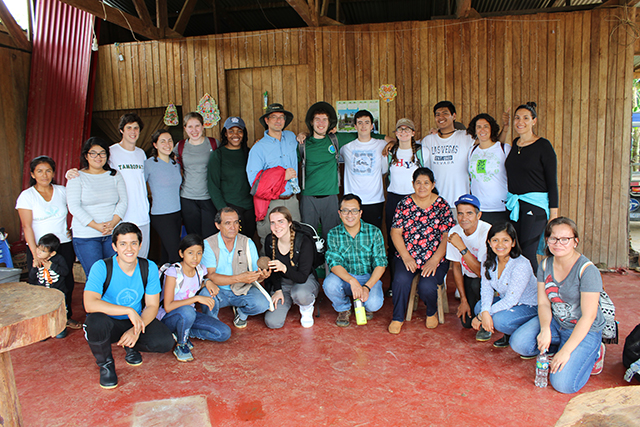
Students Serena Davis (SD), A.B. ’21, Toluwalase Oladitan (TO), A.B. ’20, and Jessica Klusty (JK), S.B. ’20, concentrating in computer science, biomedical engineering, and bioengineering respectively, shared their experiences on the trip.
1. What inspired you to participate in this J-term trip?
TO: As a junior, I wanted to finally take advantage of the opportunities afforded to me by Harvard. This J-term trip seemed like an amazing opportunity to immerse myself in a different culture and improve my problem solving skills while aiming to help the communities we were visiting.
JK: I have always wanted to participate in a trip like this at Harvard. I have the opportunity to attend the best school in the world, and I want to use my education to help better the world. This was an amazing chance to do just that.
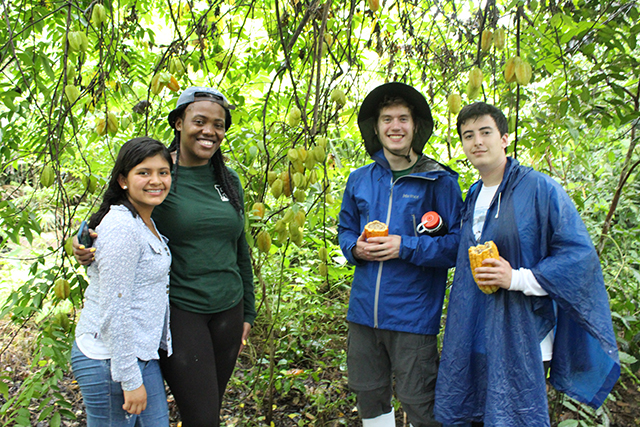
2. What was a key takeaway for you from this experience?
SD: If we want to develop tools for a certain community, it’s essential to actually get to know that community and initiate a feedback loop to ensure that the tools are a good fit.
TO: A key takeaway for me was that it is important for growing engineers to see as much of the world as possible and to connect with many people from many different backgrounds. I believe just having that exposure is invaluable because it gave me different perspectives of the world, and introduced me to the issues that many people here are facing, and their larger implications.
JK: Definitely one of the most lasting impressions for me was the importance of being in the environment of the problem and speaking to the people who would be affected by the solution first hand. In general, the problems and solutions given in classes are hypotheticals, meant to teach a concept without diving into the background and actual implications. It was nice to be reminded of the positive impact that engineering can have, but only if one considers the entirety of the space.
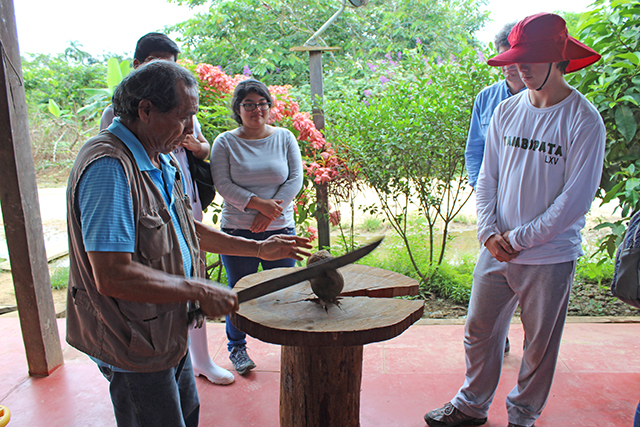
3. What was the result of the project?
TO: The three groups of students, mixed of Harvard and UTEC students, successfully pitched three different proposals for increasing incentives for agricultural activity in various communities in Peru. My group proposed that we create a more accessible and understandable database and booklet for farmers to utilize that improves on the existing literature they have.
JK: My group’s proposal was a multi-level education program that could be individualized to each community. Our idea was based on the fact that different communities, depending on their location (Amazon River Basin versus Andes Mountains) or already-established knowledge, have different soil education needs that should be addressed accordingly.
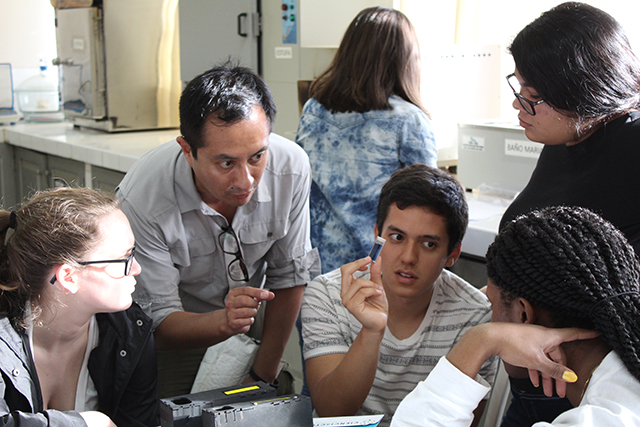
4. What was an unexpected challenge for you/the group?
TO: An unexpected challenge my group encountered was narrowing our proposal enough to pitch a solution that could be rolled out in the near future. My group completely changed our proposal about three days before our final presentation and that came as a shock to everyone, but we pulled through and managed to execute our revamped presentation, which was well-received.
JK: An unexpected challenge was the sheer amount of knowledge that we had to integrate into a project proposal. Every day we were learning something new that had to be incorporated into the project we were concurrently developing, and sometimes that new thing would completely alter the direction of the project from day to day.
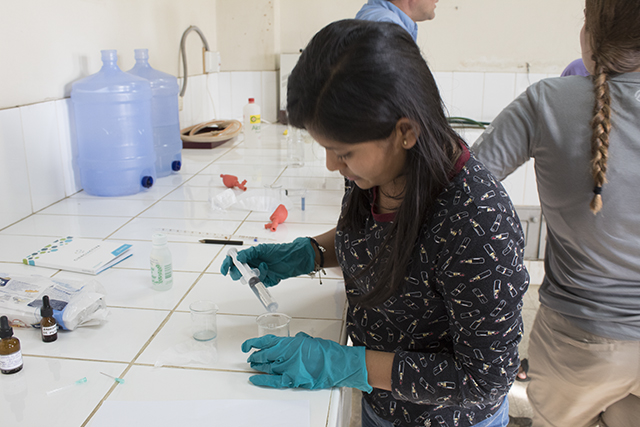
5. What was your favorite part of the trip?
TO: My favorite part of the trip was the group bonding we had with everyone the night after grinding all day to finish our final presentations. We ate, sang, drank, danced, and had an amazing time, even though we were all beyond tired. I made some real friends during the trip that I hope to keep for a long time.
JK: My favorite part of the trip was the human interactions. Whether it was Harvard students, Peruvian students, farmers, tourists, or locals in the towns we visited, I was always learning something new and making memories that will last a lifetime.
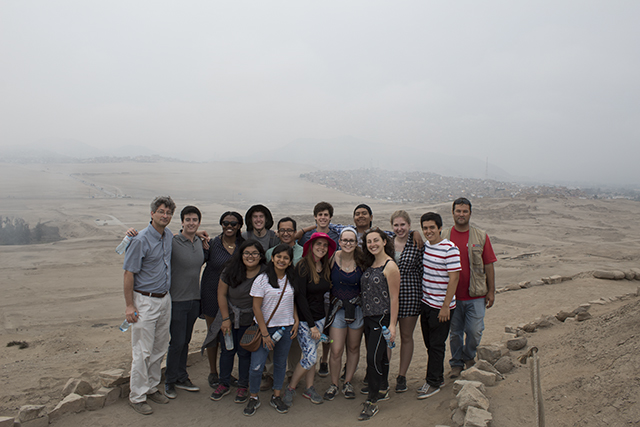
6. Are there any next steps for the project?
TO: The next steps of the project are implementing the solutions each group proposed. My group’s proposal involved creating a database and booklet for farmers to reference to help them prevent and deal with pests that hinder their harvest. Students at UTEC will be working on conducting research to begin constructing the site.
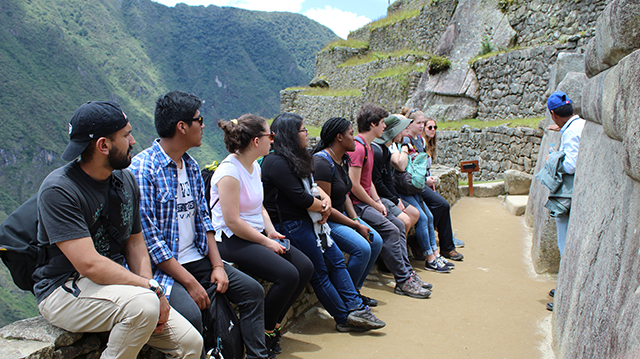
7. Did this experience affect your future plans (academic, career) in any way?
TO: This experience has made me want to travel to different parts of the world after I graduate from college. I’m not sure in what capacity yet, but I definitely caught a travel bug and I want to continue growing and learning from my experiences.
JK: This experience reaffirmed my desire to work for nonprofits in developing countries. I have always wanted to do this, but not having a chance during the last few years made that desire fade slightly. But now it’s back at full steam ahead, along with my desire to continue improving my Spanish.
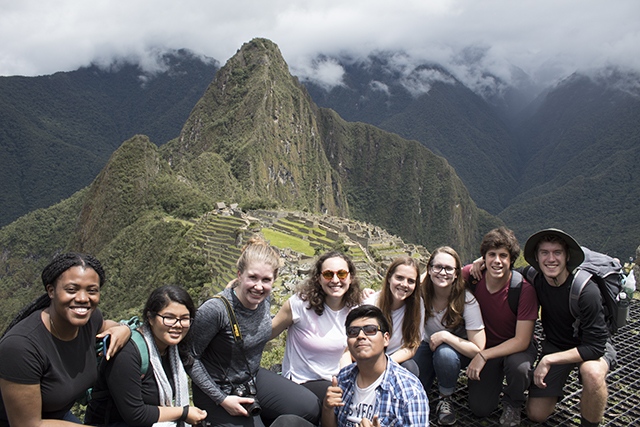
Is there anything else you would like to add?
SD: I would encourage SEAS to continue promoting opportunities for students to apply their engineering skills toward environment- and agriculture-based projects.
JK: I would also like to encourage SEAS to offer opportunities like this, and especially encourage the integration of these opportunities into the regular coursework of engineering students. I would hope experiences like mine would be the norm, not the exception.
Topics: Environment
Cutting-edge science delivered direct to your inbox.
Join the Harvard SEAS mailing list.


